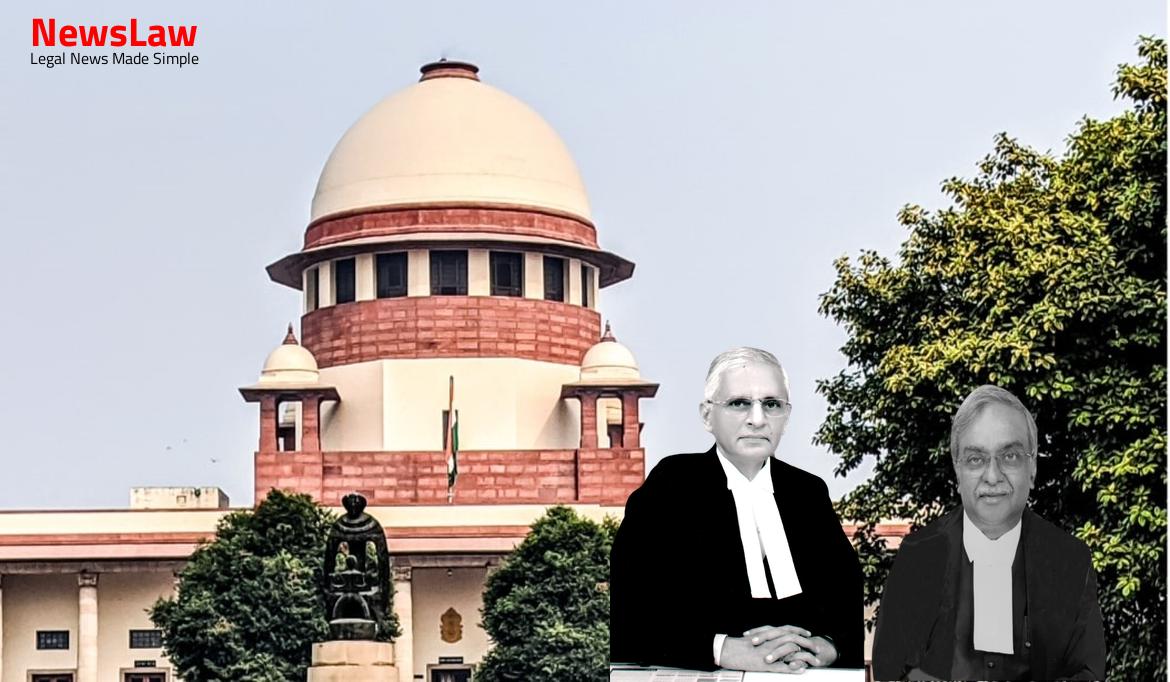Dive into the recent groundbreaking Supreme Court decision in the case of Shivani Tyagi versus the State of Uttar Pradesh and another. This landmark ruling addresses the suspension of life imprisonment sentences for the respondents, convicted in connection with an acid attack on the appellant, Shivani Tyagi. Explore the legal intricacies, precedents, and the court’s meticulous examination of factors leading to the cancellation of bail and subsequent committal to custody. This blog sheds light on the significance of the judgment in shaping legal precedents around the handling of serious offenses like acid attacks in India.
Facts
- The victim of an acid attack filed appeals against the suspension of sentence and release on bail of the convicted persons.
- The appellants argue that the convicted persons should not have been released on bail as they pose a threat to society and the victim.
- The victim claims that the release of the convicted persons is a miscarriage of justice and undermines the severity of the crime committed.
- The court is to consider the safety and well-being of the victim as paramount in making decisions regarding the convicted persons’ release.
Also Read: Judgment on Aniruddha Khanwalkar’s Complaint against Sharmila Das, Usharani Das, and Sangita
Analysis
- Section 389 of the Cr.PC addresses suspension of execution of sentence pending appeal and release on bail.
- The provision requires written reasons to be recorded for granting suspension of sentence and consequent release on bail to the convicts.
- The impugned order in Criminal Appeal Nos.1957-1961 of 2024 lacked application of mind and consideration of relevant factors.
- Section 389 of Cr. PC requires recording of reasons for suspension of sentence or grant of bail.
- Factors like nature of the offence, manner of commission, gravity of the offence, and desirability of releasing the convict on bail must be objectively considered.
- Preferential treatment in delaying appeals where sentence is suspended can be detrimental to public interest and social security.
- Non-application of mind was evident as the impugned order primarily considered a payment offer of Rs. 25 lakhs by the convicts.
- Bail granted for serious offences requires careful consideration and recording of reasons.
- The appellate Court must objectively assess the matter and provide reasons for suspension of sentence and grant of bail.
- Exercise of discretion in bail applications should be judicious and not routine.
- Orders passed without application of mind suffer from non-application of mind as per various court decisions.
- Reference made to cases like Ram Govind Upadhyay v. Sudarshan Singh, Puran v. Rambilas, and Kalyan Chandra Sarkar v. Rajesh Ranjan for non-application of mind in orders.
- Khilari v. State of Uttar Pradesh & Ors. decision interfered with a suspension of sentence and bail order due to non-application of mind.
- Parameters for invocation of power under Section 389 Cr. PC highlighted from previous decisions for consideration in present case.
- Distinction between bail and suspension of sentence clarified.
- Importance of reflecting reasons for suspending sentence and granting bail under Section 389 Cr.PC emphasized.
- Contrasting positions in cases of serious offences versus other offences when invoking power under Section 389 discussed.
- The order suspending the sentence of the private respondents and enlarging them on bail was considered to invite interference.
- In appeals involving serious offenses, comprehensive consideration of all parameters is necessary.
- The serious nature of the offense was not adequately taken into account when exercising power under Section 389 of Cr. PC.
- The impugned judgment, upon review, was found to have been made ineptly, with insufficient consideration of relevant parameters.
Also Read: Anticipatory Bail Application Rejected in Appellants vs. State Case
Decision
- The Appeals have been allowed, resulting in the impugned order being set aside.
- The bail granted to the private respondent in all appeals has been cancelled.
- The appellants have been directed to surrender before the trial court for committal to judicial custody within four days.
- Failure to surrender as ordered will result in re-arrest and committal to custody of the private respondents who are convicts.
Also Read: Assessment of Compensation in Multi-Income Source Fatality Case
Case Title: SHIVANI TYAGI Vs. STATE OF U.P. (2024 INSC 343)
Case Number: Crl.A. No.-001957-001961 / 2024



